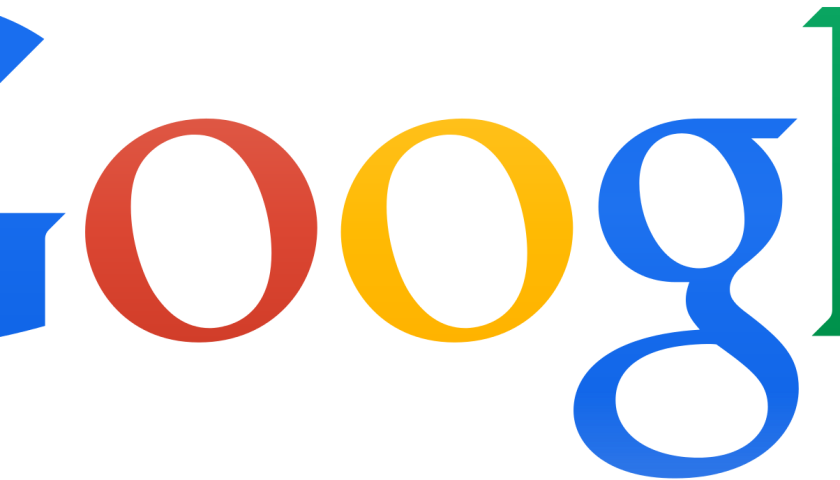Google Facts
Google is a U.S. public corporation, initially established as a privately held corporation in 1998, which designed and managed the Internet Google search engine. Google’s corporate headquarters is at the “Googleplex” in Mountain View, California and employs almost 5,000 workers. Dr. Eric Schmidt, former CEO of Novell, was named the Chief Executive Officer when co-founder Larry Page stepped down.
The company’s overview web page states “Google’s mission is to organize the world’s information and make it universally accessible and useful.”
Google Management
Position: name, age, compensation in USD (as of June 2005)
- CEO: Eric E. Schmidt, 50, $82K
- CFO: George Reyes, 51, $781K
- President of Technology: Sergey Brin, 31, $1
- President of Products: Larry E. Page, 32, $1
- Sr. VP of Worldwide Sales: Omid Kordestani, 41, $572K
- VP of Corp. Development, Secretary and Gen. Counsel: David C. Drummond, 42, $776K
Founders Brin and Page reportedly earned $1 billion in 2004, but after the IPO in Aug 2004, their compensation is reported in SEC filings annually. Page, Brin, and Schmidt have all declined recent offers of bonuses and increases in compensation by Google’s board of directors. Institutional Shareholder Services ranked Google’s corporate governance dead last in the list of members of the Standard & Poor’s 500.
According to the Forbes 400 list (2005), the combined net worth of Larry Page and Sergey Brin is $22 billion US. But due to the recent surge in stock price (April 2005-June 2005), their net worth is significantly higher. When recorded on the Forbes 400, Google’s stock was around $111. In late 2005 Google shares were valued at $385. Page and Brin, however, had sold $2 billion before some of the largest stock gains.
Google Philosophy
Google is known for its relaxed corporate culture, reminiscent of the Dot-com boom. Google’s corporate philosophy is based on many casual principles including: “You can make money without doing evil”, “You can be serious without a suit” and “Work should be challenging and the challenge should be fun.” A complete list of corporate fundamentals is available on Google’s Web site. The company encourages equality within corporate levels. Twice a week there is a roller hockey game in the company parking lot.
Every Google engineer is encouraged to spend 20 percent (20%) of their work time on projects that interest them. Some of these end up as Google services (notably Adsense/Adwords — which provide the majority of the company’s revenue), as well as Gmail, Google News and Orkut.
Google Corporate Office
Google’s headquarters is called the Googleplex. The lobby is decorated with a piano, lava lamps, and a real-time projection of current search queries. The hallways are full of exercise balls and bicycles. Each employee has access to the corporate recreation center. Recreational amenities are scattered throughout the campus, and include a workout room with weights and rowing machines, locker rooms, washers and dryers, a massage room, assorted video games, Foosball, a baby grand piano, a pool table, and ping pong.
In addition to the rec room, there are snack rooms stocked with various cereals, gummy bears, toffee, licorice, cashews, yogurt, carrots, fresh fruit, and dozens of different drinks including fresh juice, soda, and make-your-own cappuccino. After eating, people can relieve themselves on digital toilets similar to Japanese toilets.
Google Culture
Many people have suggested that after Google’s IPO the corporate culture will not be able to stay so “fun” and focused on the future. The company may be required to answer to its new shareholders who may press the company to reduce employee benefits and to focus on short term advances. Also, it may be more challenging for the company to maintain a collegial atmosphere when approximately 1,000 (30%) of the employees are paper-millionaires.
In a report given to potential investors, co-founders Sergey Brin and Larry Page promised that the IPO would not change the company’s culture. Later Mr. Page said, “We think a lot about how to maintain our culture and the fun elements.”
In 2005, articles in The New York Times and other news sources began suggesting that Google had lost its anti-corporate, no evil philosophy. The New York Times article was headlined, “Relax, Bill Gates; It’s Google’s Turn as the Villain”.
Google Partnerships
On Sept 28 Google announced a partnership with NASA which would involve Google building an R&D center at NASA’s Ames Research Center. As reported by SearchEnginejournal.com, NASA and Google were said to be planning to work together on a variety of areas, including large-scale data management, massively distributed computing, bio-info-nano convergence, and encouragement of the entrepreneurial space industry.
The new building would also include labs, offices, and housing for Google engineers.
Google also has a partnership with Sun Microsystems to help share and distribute each other’s technologies. As part of the partnership Google will hire employees to help the open source office program OpenOffice.org.
Google Acquisitions
2001
- Feb 2001: Deja (the Usenet archive, not the company) was acquired, and was incorporated to become part of the re-launched Google Groups.
- Sep 2001: Google acquired Outride Inc.
2003
- Feb 2003: Google acquired Pyra Labs, a weblogging provider and owner of Blogger.
- Apr 2003: Neotonic Software was acquired as part of Google’s plan to bring its CRM technology in house.
- Apr 2003: Applied Semantics was acquired.
- Sep 2003: Kaltix was acquired to develop and launch Google Personal.
- Oct 2003: Sprinks was acquired to enhance Google’s Adwords and AdSense program.
- Oct 2003: Google acquired Genius Labs, another web logging provider.
2004
- Apr 2004: Ignite Logic was acquired.
- Jun 2004: Google made a $10M investment into partial ownership of Baidu.
- Jul 2004: Picasa was acquired to provide picture management tools to Blogger.
- Oct 2004: Keyhole was acquired to provide the core mapping capabilities in Google Maps and Google Earth.
- Sept-Dec 2004, Google revealed in its annual 10-K filing that it had acquired 2 Silicon Valley start-up companies: ZipDash and Where2. The technology provided by ZipDash was used to develop and launch Google Ride Finder. Where2 was a mapping software provider.
2005
- Mar 2005: Web analytics tools provider Urchin software was acquired.
- May 2005: DodgeBall, a social networking software provider for mobile devices, was acquired.
- Jul 2005: Google, in combination with Goldman Sachs, and the Hearst Corp., invests a total of $100 Million into Current Communications Group.
- Jul 2005: Google announced in its Q2 quarterly conference call that it had acquired Akwan Information Technologies as a part of its plan to open an R&D office and expand its presence into Latin and South America.
- Aug 2005: Google acquires Android Inc., a software provider for mobile devices
- September 28: both Google and Ames Research Center disclosed details to a long-term research partnership. In addition to pooling engineering talent, Google plans to build a 1-million square foot facility on the ARC campus.
- September 2005: Google moves into offering free Wi-Fi Internet access to San Francisco (Google Secure Access)
- November 2005: Google launches Google Base to beta. Google Base allows users to submit content to the massive Google database for search.




